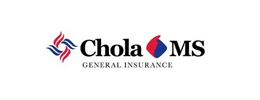Last updated on: September 19, 2025
GST (Goods and Services Tax) is applicable to health insurance premiums in India at a standard rate of 18%. This means that when you purchase or renew a health insurance policy, the insurer adds an 18% GST charge to the base premium amount. For example, if your base premium is ₹10,000, the actual amount payable will be ₹11,800 after adding GST. This tax is uniform across all types of health insurance policies, including individual, family floater, and senior citizen plans. While GST increases the overall cost of health insurance, policyholders cannot claim GST input credit for personal health insurance, but businesses that buy group health insurance for employees may be eligible for input tax credit under certain conditions. Always check your policy documents for clear GST breakdowns in the premium.
Health insurance is becoming essential across Indian households, especially as medical costs rise every year. However, many people are unclear about how taxes are applied to health insurance premiums, particularly about the Goods and Services Tax or GST. Understanding GST for health insurance in 2025 will help you make informed decisions, plan your finances better, and save money the right way.
The Goods and Services Tax, introduced in India in 2017, is a unified indirect tax levied on most goods and services sold for domestic consumption. In the case of health insurance, GST is applied directly to your premium amount. The current GST rate for health insurance policies is 18 percent in 2025.
When you pay your health insurance premium, the amount includes two parts:
So, for every renewal or new purchase, your GST contribution goes to the government, while the basic premium is the cost of actual insurance coverage offered by the insurance company.
Did you know? If your base premium is ₹10,000, you pay ₹1,800 as GST alone, making your total premium ₹11,800 per year.
While 18 percent GST is standard on most health insurance plans including individual, family floater, and senior citizen policies exceptions exist for specific government schemes or rural benefit products. Riders and add-ons like critical illness cover also attract the same GST rate of 18 percent.
The GST charged is clearly shown in your premium receipts and is included in the ‘gross premium’ you pay. The amount may change if the government updates tax rates, but in 2025, the 18 percent rate continues as the norm.
Example Calculation:
| Base Premium | GST (18 percent) | Gross Premium (Total Payable) |
|---|---|---|
| ₹10,000 | ₹1,800 | ₹11,800 |
| ₹25,000 | ₹4,500 | ₹29,500 |
| ₹40,000 | ₹7,200 | ₹47,200 |
If you are an individual buying health insurance for yourself or family, you cannot claim the GST paid as input tax credit (ITC). ITC is meant for businesses to reduce tax liability, not for retail health insurance buyers.
However, enterprises or companies providing group health insurance to employees as a condition of employment may be able to claim ITC on the GST paid, as per the applicable GST rules and subject to certain conditions laid down by tax authorities.
Expert insight: For salaried or self-employed individuals, the GST is a fixed extra outgo over the premium, but business owners should consult a tax expert to check their eligibility for ITC.
Yes, GST is a compulsory indirect tax on health insurance premiums as per the GST Act. It applies to all policyholders except those under exempt schemes like the Central Government Health Scheme (CGHS) and government-sponsored health products.
GST is designed to bring parity among all products and services in India. By including health insurance under its ambit, the government collects revenue to fund different public welfare and healthcare projects.
Insurance companies are required to follow all updates related to GST rates promptly. If the government revises the GST rate in future, your next premium payment will include GST at the new rate.
Did you know? Revision of GST rates happens through official government notifications and the new rates are immediately applicable to all new and renewing health insurance policies.
Many policyholders feel the pinch of GST since it raises the cost paid for health cover. For example, a ₹15,000 base policy requires an additional ₹2,700 in GST, making the total cost ₹17,700. Over several years and families with multiple members insured, GST becomes a significant contributor to overall insurance expenditure.
Key highlights:
While individuals cannot directly avoid GST on premiums, you can lower your overall tax outgo by using Section 80D of the Income Tax Act. Under Section 80D, health insurance premiums (including GST portion) can be claimed as tax deduction up to specified limits.
| Who Pays? | Maximum Deduction (including GST portion) |
|---|---|
| Self, Spouse, Children | Up to ₹25,000 |
| Parents (below 60 yrs) | Up to ₹25,000 |
| Senior Citizen Parents | Up to ₹50,000 |
People also ask: Can I claim GST separately in 80D deduction? Answer: The full premium amount paid—including GST—is eligible for 80D deduction. There is no distinction made for GST portion, so you do not need to break up the amounts separately for tax purposes.
Did you know? Although GST has raised prices, policy comparison through online marketplaces can help you find cheaper base premium options, minimizing total outgo.
Absolutely. In 2025, most online insurance comparison websites and aggregators display the GST portion along with the base premium for all plans you browse. This clarity helps buyers compare not only plain premium amounts but also the final payable cost.
When comparing health insurance online:
Expert insight: Some insurers run temporary discount offers that indirectly lower your GST outgo (since GST applies after discounts). Always check latest offers on online marketplaces before buying or renewing.
Arjun, a 34-year-old marketing executive from Pune, shares: “My family floater plan’s renewal quote surprised me. The total premium was listed as ₹18,880, but the principal amount was ₹16,000 only. I realized the rest was GST. Had I not checked the premium breakup on the insurer portal, I would not have noticed how much tax I pay every year.”
Maya, a freelancer from Hyderabad, adds: “I use an online comparison site to check renewal options yearly. Even if GST is fixed, by switching to a plan with a lower base premium, I save both on the premium and the GST amount together. It’s simple mathematics but very few people realize its value.”
People also ask: Does GST amount vary for new and renewal policies? Answer: No, the GST rate does not change between new and renewal policies. However, new sum assured or add-ons during renewal can increase both premium and GST.
Here’s a sample comparison of total premiums, including GST, for a ₹5 lakh sum insured for a 30-year-old in 2025:
| Insurer | Base Premium | GST (18 percent) | Gross Premium |
|---|---|---|---|
| ABC Health | ₹9,450 | ₹1,701 | ₹11,151 |
| SecureLife Health | ₹10,200 | ₹1,836 | ₹12,036 |
| Bharat Arogya | ₹9,999 | ₹1,799 | ₹11,798 |
| Star MediSecure | ₹10,499 | ₹1,889 | ₹12,388 |
These numbers fluctuate based on your city, age, health profile, and coverage needs, but the GST rate remains consistent.
Expert insight: Comparing multiple insurers on a single platform can give visibility into the minimum GST you would pay, per plan and per addon. Always check the breakup before you buy.
Yes, the GST portion is included in the overall premium eligible for Section 80D tax deduction.
Most are, except a few government-sponsored or CGHS plans.
Yes, the same 18 percent GST applies on all types of retail health insurance, including top-up and super top-up policies.
Sometimes; only if the group cover is a mandatory employment benefit, and subject to prevailing GST rules.
Premium receipts and online policy details show a clear breakup between base premium and GST paid.
Not for standard or private policies. Only select public schemes or certain government insurances remain GST-exempt.
GST on health insurance in India is 18 percent and must be paid on every policy’s base premium. It increases your total outlay and is not refundable or claimable separately for individuals. Use online comparison sites for complete premium transparency, and remember, the total premium (base plus GST) is eligible for full Section 80D income tax deduction.
Source/References:












How could we improve this article?
Written by Prem Anand, a content writer with over 10+ years of experience in the Banking, Financial Services, and Insurance sectors.
Prem Anand is a seasoned content writer with over 10+ years of experience in the Banking, Financial Services, and Insurance sectors. He has a strong command of industry-specific language and compliance regulations. He specializes in writing insightful blog posts, detailed articles, and content that educates and engages the Indian audience.
The content is prepared by thoroughly researching multiple trustworthy sources such as official websites, financial portals, customer reviews, policy documents and IRDAI guidelines. The goal is to bring accurate and reader-friendly insights.
This content is created to help readers make informed decisions. It aims to simplify complex insurance and finance topics so that you can understand your options clearly and take the right steps with confidence. Every article is written keeping transparency, clarity, and trust in mind.
Based on Google's Helpful Content System, this article emphasizes user value, transparency, and accuracy. It incorporates principles of E-E-A-T (Experience, Expertise, Authoritativeness, Trustworthiness).